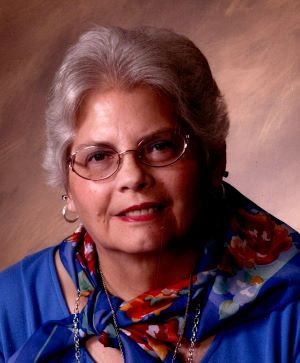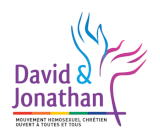Grief is never one feeling that arises, expresses itself and then leaves. Grief takes hold and lingers. You may have forgotten it was there, only to come upon it suddenly and find yourself re-immersed in the memories, sensations and associations that your grief carries.
In July, my 73-year-old aunt Dorothy Kuzma died. When I came out as transgender in late 2019, she sent me a Christmas card that read, “I am happy to have another nephew.” Part of what made my aunt’s support so significant for me was that I lost many people during my transition—particularly Catholics. I was living alone at the time and clung to any small feeling of local community and friends that I could find. But it wasn’t enough. I needed my family, and Dorothy was one of the people who fulfilled that role of love and support for me.
Many strong feelings arose for me when I attended her wake and then her Catholic funeral, surrounded by my cousins, aunts and uncles. “Maxwell Kuzma, Nephew,” read my name tag. I was deeply touched by this echo of that Christmas card she had sent me. I was known and loved. One of Dorothy’s sisters asked me to read at Mass and serve as a pallbearer, physically carrying Dorothy to her final resting place. These experiences affirmed me both in my identity as her nephew and as a Catholic.
Part of what made my aunt’s support so significant for me was that I lost many people during my transition—particularly Catholics.
During the Funeral Mass, I felt deeply connected to the life of the church in a way I never before experienced in my life—despite having many significant experiences of faith growing up and despite my understanding of what Christ’s sacrifice means. Every Mass is a deeply profound experience but we do not always understand (or indeed experience) this profound mystery. Yet this Mass was different.
Not only did I show up as myself in church that day, but I was surrounded by the love and support of my family. Each word of the Mass—which, as a cradle Catholic, I knew before they left the priest’s lips—resonated in ways I’d never felt before. It was an experience of true communion: the communion of souls, both living and dead.

I stood before the church and read the words of 1 John 3:1, “See what love the Father has given us, that we should be called children of God; and so we are.” I read these words as fully myself, in my voice, as a beloved child of God and a beloved member of an earthly and spiritual family.
LGBTQ people are part of families, and being rejected or kicked out doesn’t change that. We know that Catholic means universal. We know that we are called to be a welcoming church, a welcoming family. And that welcoming spirit is what I experienced at my aunt’s funeral Mass. My family understood what Dorothy meant to me, and they modeled the love she showed to me, even in her physical absence.
One of the best things about being part of a family is the way they love you through awkward stages: when you are a cranky toddler outgrowing naps, when you’re a moody young adult dealing with body changes and hormones, when you get a wild haircut and wait for it to grow out, and finally, when you need help in your older years. A family knows how to love a work in progress. There is space for you to be fully human, at every awkward stage. There’s no agenda, only the loving support of being there while someone figures it out.
A family knows how to love a work in progress. There is space for you to be fully human, at every awkward stage.
So it is in the life of the church. We walk alongside each other. We break bread together. Imagine the ways our world would change for the better if we were able to internalize this truth, setting aside judgement, jealousy and fear. The Gospel of Jesus Christ compels us to take everything that we know about love and apply that to everyone, especially when someone is part of a marginalized community.
That’s what Jesus did. And that was the kind of love I felt from my family at Dorothy’s funeral.




